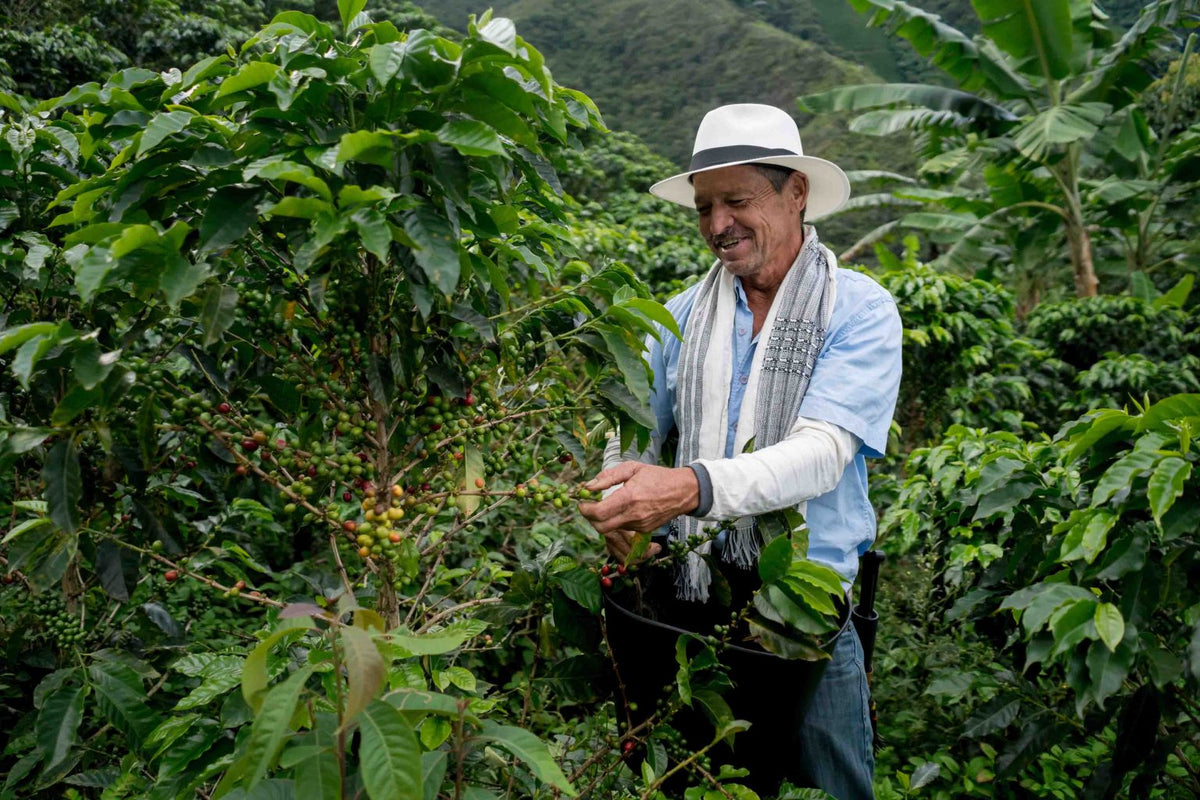Responsible consumption: local or fair trade purchasing?

In recent years, local purchasing has often been put forward as a principle of responsible food consumption. Since the start of the pandemic in spring 2020, agricultural products grown and processed in Quebec have been put forward even more. On the other hand, we know the ethical benefits of fair trade. From an environmental point of view, is it relevant to oppose local purchasing and fair trade? Should we ban all imported products, on the pretext that they have traveled too many kilometers before reaching your plate?
The food system and the agricultural model
“Great, Quebec potatoes at $1.98 for 10 pounds! " Really? But what did the producer have to sacrifice for these potatoes to be offered to us so cheaply?
At Umano, we do not hesitate to question the modes of agricultural production and distribution that lie behind the notion of local purchasing. Under what conditions was the food grown? Do the prices offered by distributors allow sustainable agriculture? What are the practices with temporary immigrant workers who work on farms? And what is the environmental impact of crops? The “product of Quebec” label in no way guarantees the conditions in which the food was produced and purchased.

By focusing too much on proximity at all costs, we can forget the question of the mode of agricultural production. Should we not, above all, encourage a model of small family farming, a social economy and preserving biodiversity? A local food sourced from agro-industry is probably less ethical than a product that comes from further afield, but is grown using a sustainable and fair trade certified farming model.
We can also think of maple syrup, a richness of the Quebec region. A can of non-organic syrup purchased for $5 in a supermarket encourages agribusiness. Whereas a kilo of organic and fair trade cane sugar, purchased in bulk from an independent grocery store and imported by a small local business, encourages a completely different model, in which everyone receives their fair share.
Why buy local?
Why choose a food produced and processed in Quebec? Most will say it is to support the local economy and to reduce environmental costs associated with transportation.
However, transportation only accounts for 6% of the carbon footprint of food. This therefore means that the number of kilometers traveled by the food is not crucial for eco-responsibility. We must consider its mode of production, its nature (animal or plant product) and whether it is organic or not. We should also not forget that fair trade certification includes several environmental requirements.
We obviously believe in the importance of supporting local people. But we believe more generally that we must be grateful to those who produce the food that ends up in our pantries, regardless of whether they are from here or elsewhere. The farmers who grow food for their families and for sale work hard.
The COVID-19 pandemic is difficult for producers here, and has further weakened the poorest populations. Of course, we are all facing the same storm, but we do not all have the same boat to navigate it. Our solidarity with producers in Africa, Asia and South America must continue to be expressed through fair trade.
Flavors from here and elsewhere
Which is better: herbal tea harvested from your garden or organic, fair trade coffee roasted locally? Our answer: it simply depends on what you want. Consuming imported products allows you to taste flavors that reflect terroirs that are not ours.
Let's take pleasure in discovering exotic tastes, which offer the privilege of getting closer to distant cultures and know-how. In current and future times, when we are certainly traveling less, why not travel while tasting flavors from elsewhere? Go to Guatemala with a coffee, to Burkina Faso with dried mangoes or to Sri Lanka with the smell of Ceylon cinnamon! Quality food products will perhaps then resume their place as ambassadors of distant countries and cultures.

And of course, when you consume imported products, choose fair trade ones!
So, what to choose for responsible consumption?
All in all, we firmly believe that local purchasing and fair purchasing are not opposed . The local purchasing movement could draw inspiration, among other things, from good practices from fair trade. They are rather complementary, and the important thing is the entire responsible consumption approach.
Taking a single characteristic of a food, such as its origin, to make a purchasing decision is not enough. To make an informed choice, we should instead have a more global vision and consider several elements of the food system. In addition to the factors of origin and fair trade certification, we can favor organic, bulk, vegan, seasonal foods, etc.
The divide which seems to oppose local to international is transformed into a questioning between an eco-responsible economy and a profit economy above all, between unbridled consumption and epicurean consumption, between agro-industry and peasant agriculture... The principles of fair trade are not limited to to trade between countries of the North and the South, but also apply here.
Reminder: What is fair trade?
Fair trade is based on the notion of fairness (recognition, respect, dignity, balance). It promotes the sharing of goods and values between individuals, groups, peoples, nations.
For international exchanges, precise criteria have been developed to define the framework of commitments:
Fair prices: on the free market, prices fluctuate and are determined by exchanges and the interests of financial groups. For fair trade, prices are the result of direct negotiations between exporters and importers within the framework of a determined floor price.
A development bonus , managed collectively by producer groups, supplements the fair price.
Respect for economic and social rights: fair trade guarantees respect for fundamental rights, supports the social economy and worker representation bodies within companies.
Sustainable development: fair trade promotes environmentally friendly production methods (the majority of fair trade products are certified organic).
